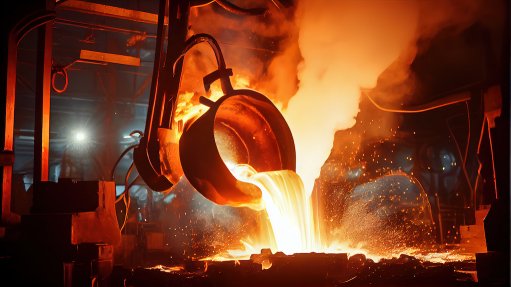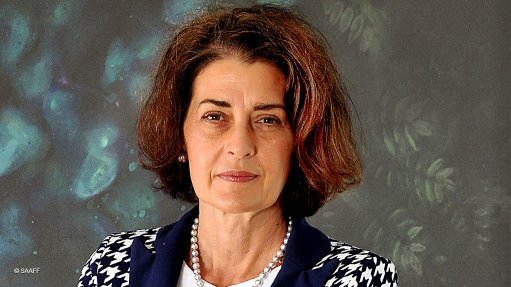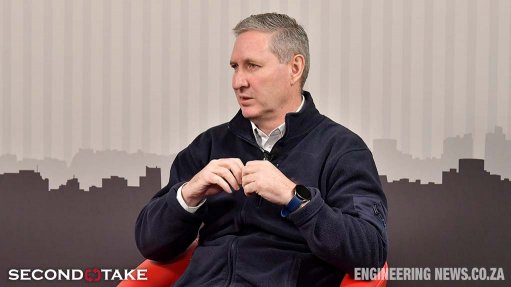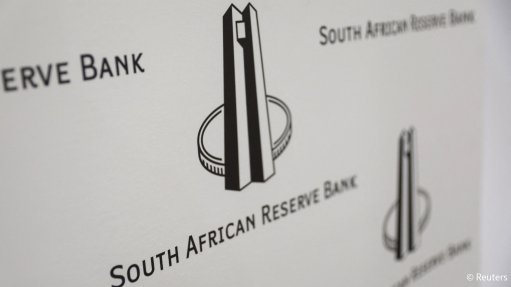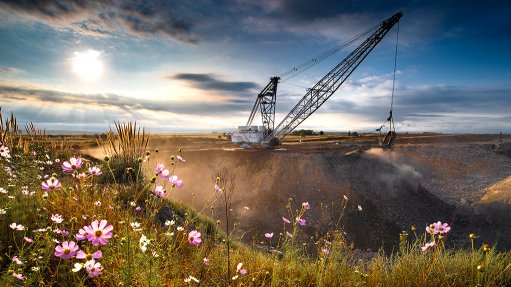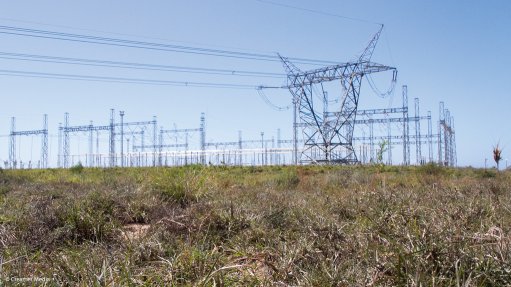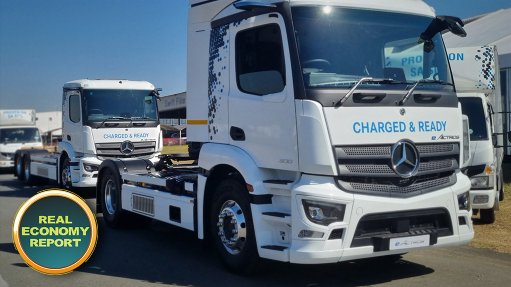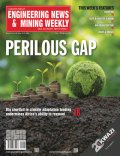Circular economy gaining traction in Africa, but still layered onto linear economies
There are various local, regional and international initiatives that are assessing and driving circular economy practices in Africa, but the transformation of existing linear economies remains chequered.
Strategic interventions are needed to embed new circular economic paradigms in Africa and in regional bloc the Southern African Development Community (SADC), said researchers from independent public policy think tank South African Institute of International Affairs (SAIIA).
"The circular economy is a transformative paradigm that can help to address environmental concerns and economic development needs. This is accentuated in the SADC, where the management of minerals and renewable-energy industries for development is an imperative.
"However, despite the anticipated economic and environmental dividends that can be derived from circular economy models, transformation remains chequered and complex," said SAIIA senior programme manager and researcher Letitia Jentel.
In the 'Beyond Linear Economies: Envisioning the Future of Circular Economies in SADC' research report, the researchers concluded that the "circular economy in the SADC region promises to address environmental concerns while driving economic transformation by transitioning from the linear economy model".
In sustainable development, the economy and finite ecology are interdependent, with ecological limits setting boundaries for economic activities. Economic systems, in turn, affect ecological resources, they explained.
"In response to this interdependence, the concept of the circular economy emerged, with the aim of blending elements from both spheres. By closing loops and reusing resources, the circular economy seeks to optimise resource use while eliminating the need for extracting virgin resources," the researchers said.
In a scenario of unconstrained growth, where GDP grows ad infinitum, countries and the world would run out of natural resources. This was the decoupling conundrum, said SAIIA senior researcher Francois Pretorius during a webinar discussing the research report on June 5.
"In the scenario of resource decoupling, we would progressively use fewer natural resources to keep our economies growing, although absolute decoupling is currently not feasible.
"In the context of the circular economy, the inevitable loss of energy as waste heat during recycling poses a challenge. Real-world complexities make complete reversibility and achieving zero waste practically impossible, as it would require a continuous energy supply," he said.
Further, the circular economy is underpinned by three fundamental principles that are orchestrated through strategic design. These are eliminating waste and pollution from value chains; the deliberate circulation of products and materials at their peak value; and the restoration of nature.
"A purposeful transition to renewable-energy sources and materials further fortifies the circular economy framework’s robustness. This signifies a paradigm shift from the traditional linear economy, where resources are extracted, used and discarded, often resulting in waste and environmental degradation.
"Therefore, the circular economy concept is widely lauded as a comprehensive strategic approach for sustainable development.
"However, critical scrutiny of the claims behind the circular economy is vital to ascertain whether the concept can genuinely tackle complex environmental challenges while spurring sustainable economic development," the report noted.
Also, an economic incentive for adopting circular economy models was the circular economy's potential to increase competitiveness by achieving cost reductions through resource efficiency gains and the creation of innovative value streams from by-products and waste, they highlighted.
"The European Environmental Agency notes that strategies related to material reuse can generate a value of €85-million a year within the construction sector of Amsterdam alone," the report noted.
"Job creation is another crucial aspect of the circular economy in the economic landscape. An economy promoting product-life extension through repair, maintenance and reuse tends to be more labour-intensive compared to the production processes of a linear economy.
"Additionally, as consumers become more environmentally conscious and demand products with a reduced environmental footprint, businesses are adapting to meet these expectations.
"This shift in consumer behaviour is compelling companies to integrate circular practices into their operations," the report said.
The researchers also crafted a new definition of the circular economy as a multi-level resource use system that was sensitive to contextual implementation and needed context-specific strategies while striving towards the closure of all resource use, said Pretorius.
"Barriers to implementing circular economy models in SADC include a lack of an inclusive regulatory framework and harmonised regulations among member States, knowledge disparities, and negative perceptions or resistance to a transition to a circular economy, and inadequate data, tracking and tracing of materials flows," he highlighted.
The report provided five recommendations to drive circularity in SADC economies, said Africa Circular Economy Network (Acen) circular economy expert, Ethiopia country representative and report co-author Bezawit Eshetu.
One of the recommendations is for greater regional collaboration and boundary-sharing agreements for materials flows.
A key challenge facing the region was that, while there were advanced and specialised recycling operations in some countries, all countries lacked end-processing facilities to add value to recovered materials, said Acen co-founder and executive director Susanne Karcher.
"This means, effectively, that countries are losing twice. First, when they export primary resources and then again when they export high-value materials, such as those derived from e-waste.
"To retain the resources, we need end-processing facilities. However, these are costly and there is a need to create economies of scale to justify such facilities through which the value of the resources can be retained," she said.
There are also regulatory barriers to overcome, such as the Basil Convention, which, for good reason, prevents hazardous waste from being dumped in developing countries.
"We can establish green channels between regional and trade partner countries through which e-waste can flow in a controlled manner. Existing recyclers, such as those in Namibia and South Africa, will then be motivated to increase capacity and the region can thereby secure economies of scale. This could also serve as a powerful pilot project in the region," she recommended.
Meanwhile, the circular economy would be more visible and impactful if it achieved sufficient economies of scale. This would happen through regulatory frameworks and guidelines, especially for sectors that presented outstanding potential economic feasibility, jobs creation or environmental benefits, said Eshetu.
Further, the SADC bloc and member countries should evaluate circular practices in Africa and determine where they are applicable and how they can be expanded. Countries should also implement extended producer responsibility along the value chains and look at how the adoption of circular products can be achieved.
"We must develop physical and trade policies to enable circular economies. These can take the form of tax incentives and subsidies, while existing circular economy business models should be scaled up and replicated across SADC member States," she advised.
Circular thinking had the potential to reshape the region, but formidable challenges persisted. The scarcity of strategic initiatives that drove true systemic change highlighted the need for the SADC region to move beyond isolated efforts and embrace a holistic, contextually sensitive approach, the researchers said in the report.
Designing and implementing circular economy principles and practices required the consideration of various factors, including resource availability, cultural norms, regulatory frameworks and market dynamics, they advised.
"The scarcity of strategic initiatives that drive true systemic change highlights the need for the SADC region to move beyond isolated efforts and embrace a holistic, contextually sensitive approach."
Prioritising recycling and material reuse fosters the emergence of green industries, stimulating entrepreneurship and innovation, which inevitably leads to job creation, they highlighted.
"Leveraging existing informal recycling systems provides the basis for the development of more formalised waste management systems, while promoting sustainable practice holds the potential to address energy poverty and reduce greenhouse-gas emissions."
Comments
Press Office
Announcements
What's On
Subscribe to improve your user experience...
Option 1 (equivalent of R125 a month):
Receive a weekly copy of Creamer Media's Engineering News & Mining Weekly magazine
(print copy for those in South Africa and e-magazine for those outside of South Africa)
Receive daily email newsletters
Access to full search results
Access archive of magazine back copies
Access to Projects in Progress
Access to ONE Research Report of your choice in PDF format
Option 2 (equivalent of R375 a month):
All benefits from Option 1
PLUS
Access to Creamer Media's Research Channel Africa for ALL Research Reports, in PDF format, on various industrial and mining sectors
including Electricity; Water; Energy Transition; Hydrogen; Roads, Rail and Ports; Coal; Gold; Platinum; Battery Metals; etc.
Already a subscriber?
Forgotten your password?
Receive weekly copy of Creamer Media's Engineering News & Mining Weekly magazine (print copy for those in South Africa and e-magazine for those outside of South Africa)
➕
Recieve daily email newsletters
➕
Access to full search results
➕
Access archive of magazine back copies
➕
Access to Projects in Progress
➕
Access to ONE Research Report of your choice in PDF format
RESEARCH CHANNEL AFRICA
R4500 (equivalent of R375 a month)
SUBSCRIBEAll benefits from Option 1
➕
Access to Creamer Media's Research Channel Africa for ALL Research Reports on various industrial and mining sectors, in PDF format, including on:
Electricity
➕
Water
➕
Energy Transition
➕
Hydrogen
➕
Roads, Rail and Ports
➕
Coal
➕
Gold
➕
Platinum
➕
Battery Metals
➕
etc.
Receive all benefits from Option 1 or Option 2 delivered to numerous people at your company
➕
Multiple User names and Passwords for simultaneous log-ins
➕
Intranet integration access to all in your organisation






